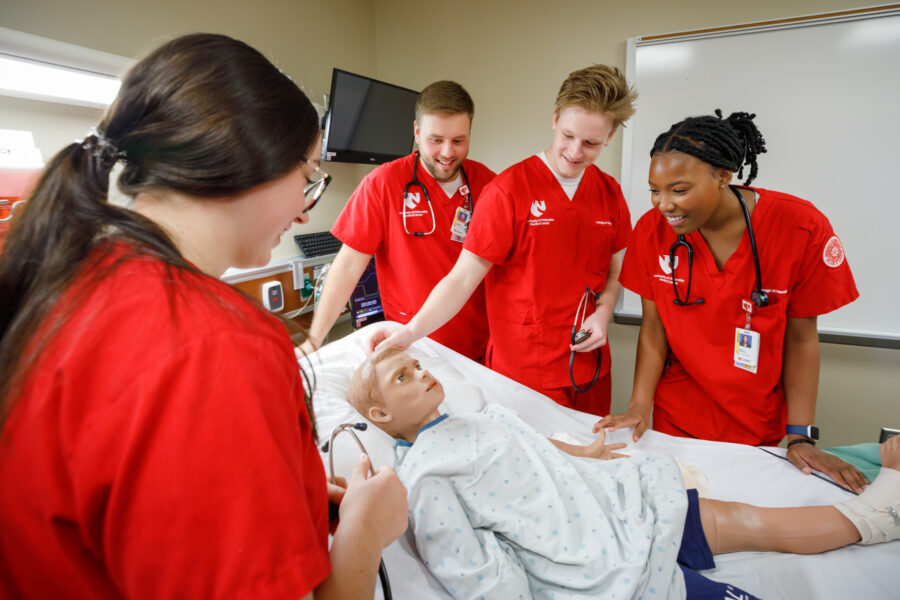UNMC College of Nursing courses are structured like building blocks. Students must master one to be ready for another.
“The final year of our BSN program,” said Cathy Tierney, EdD, assistant professor of nursing at UNMC’s Northern Division, “is a synthesis of previous knowledge.”
That means they must have mastered everything.
That can be a tough task, especially considering the chronic stress experienced by many nursing students. Too often, this final BSN year becomes a “bottleneck,” impeding graduation and entry into the workforce. This is disappointing not only to these individual students and their faculty, but it also has a huge impact on a profession facing a crucial workforce shortage.
Dr. Tierney and her College of Nursing colleagues are addressing this issue with a two-year study, “Bottleneck Reduction: Use of Simulation and Stress Reduction Apps in BSN Courses to Increase Academic Success,” recently funded by the University of Nebraska Foundation’s Fred J. Kelly Fund. The project began Jan. 1.
The “bottleneck” is not new, Dr. Tierney said, and often faculty can see it coming: “If students struggle in the first and second semester, usually by the third and fourth semester, you can tell the difference,” she said.
Research shows nursing students experience more stress than their bachelor’s-degree counterparts in non-health professions. This is in part because nursing is a stressful profession. Having to pass an all-important national exam also ratchets up the tension.
BSN students are required to attain a compulsory exam average in each nursing course and must pass the National Council Licensure Exam to attain licensure as a registered nurse.
“Bottleneck” study participants are coached on meditation and stress reduction techniques and will work with faculty to develop individualized study plans.
“We’re being proactive to address student stressors and develop a plan for success by making sure students are familiar with the academic resources available,” Dr. Tierney said.
Additionally, the study includes incorporating simulation into classroom content. This is offered to all students regardless of if they participate in the study. Faculty hypothesize that implementing these interventions may reduce the “bottleneck” that can be present in the nursing program.
Students gave positive reviews following a semester-long pilot of similar programming, Dr. Tierney said.
